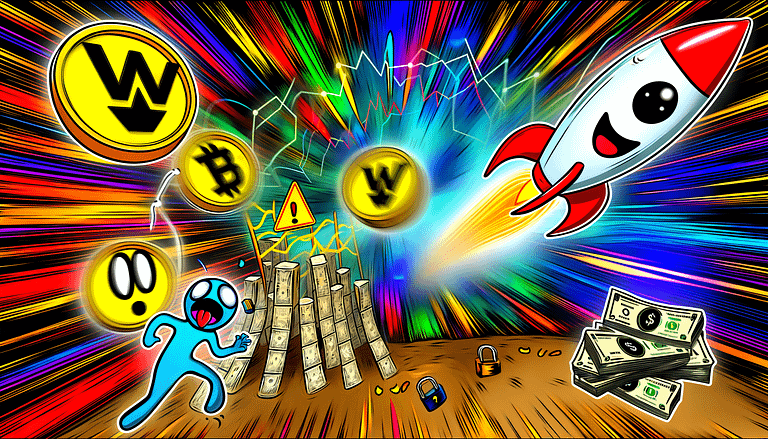BlackRock Launches $100M Digital Asset Fund
In A Nutshell
Investment behemoth BlackRock has embarked on a groundbreaking venture with the creation of a tokenized asset fund, as revealed in a recent SEC filing. This initiative, the BlackRock USD Institutional Digital Liquidity Fund, marks a significant step into the digital asset space, following their successful launch of a Bitcoin-based ETF. The fund, established in the British Virgin Islands and developed in partnership with Securitize, a prominent tokenization firm, received an initial $100 million investment in USDC stablecoin through the Ethereum blockchain. This move not only underscores BlackRock’s commitment to exploring digital assets but also signifies a pivotal moment for the tokenization of real-world assets (RWA), melding traditional finance with blockchain technology for enhanced efficiency and settlement processes.
BlackRock’s Digital Asset Exploration
After the introduction of a Bitcoin ETF that amassed over $15 billion in assets, BlackRock has further solidified its footprint in the digital asset domain with this new tokenized asset fund. This initiative aligns with CEO Larry Fink’s vision of tokenization as the future trajectory for financial markets, indicating a shift towards integrating blockchain technology with traditional investment strategies. The fund’s inception with a substantial investment in USDC on the Ethereum network points towards an increasing acceptance and utilization of stablecoins and blockchain technology in mainstream finance.
Tokenization: Bridging Traditional Finance and Blockchain
The concept of tokenizing real-world assets involves converting assets into blockchain-based tokens, thereby simplifying the process of buying, selling, and trading while ensuring transparency and security. This approach offers numerous advantages, including quicker settlement times and reduced transaction costs, which can significantly enhance operational efficiency in the financial sector. BlackRock’s venture into this space with the Institutional Digital Liquidity Fund represents a major milestone for the tokenization sector, indicating a growing recognition of blockchain’s potential to transform traditional finance mechanisms.
Market Response and Broader Implications
The announcement of BlackRock’s tokenized asset fund has already stirred the digital asset market, with Ondo Finance’s native token ONDO witnessing a notable surge in value. This response underscores the market’s positive reception to initiatives that bridge the gap between traditional finance and digital assets, suggesting a promising outlook for similar ventures in the future. Moreover, the move by a financial giant like BlackRock could accelerate the adoption of blockchain technology and tokenized assets across the broader financial industry, setting a precedent for others to follow.
Our Take
BlackRock’s foray into the tokenized asset space is not just a testament to the firm’s innovative approach but also a significant indicator of blockchain’s evolving role in reshaping the financial landscape. By leveraging blockchain technology to tokenize real-world assets, BlackRock is paving the way for enhanced efficiency, transparency, and democratization of asset ownership and investment. This venture could serve as a catalyst for widespread adoption of tokenization in traditional finance, heralding a new era of financial transactions that are faster, more secure, and accessible. As the market responds positively to these developments, we can expect to see an acceleration in the convergence of traditional finance and digital assets, opening up new possibilities for investors and institutions alike.







